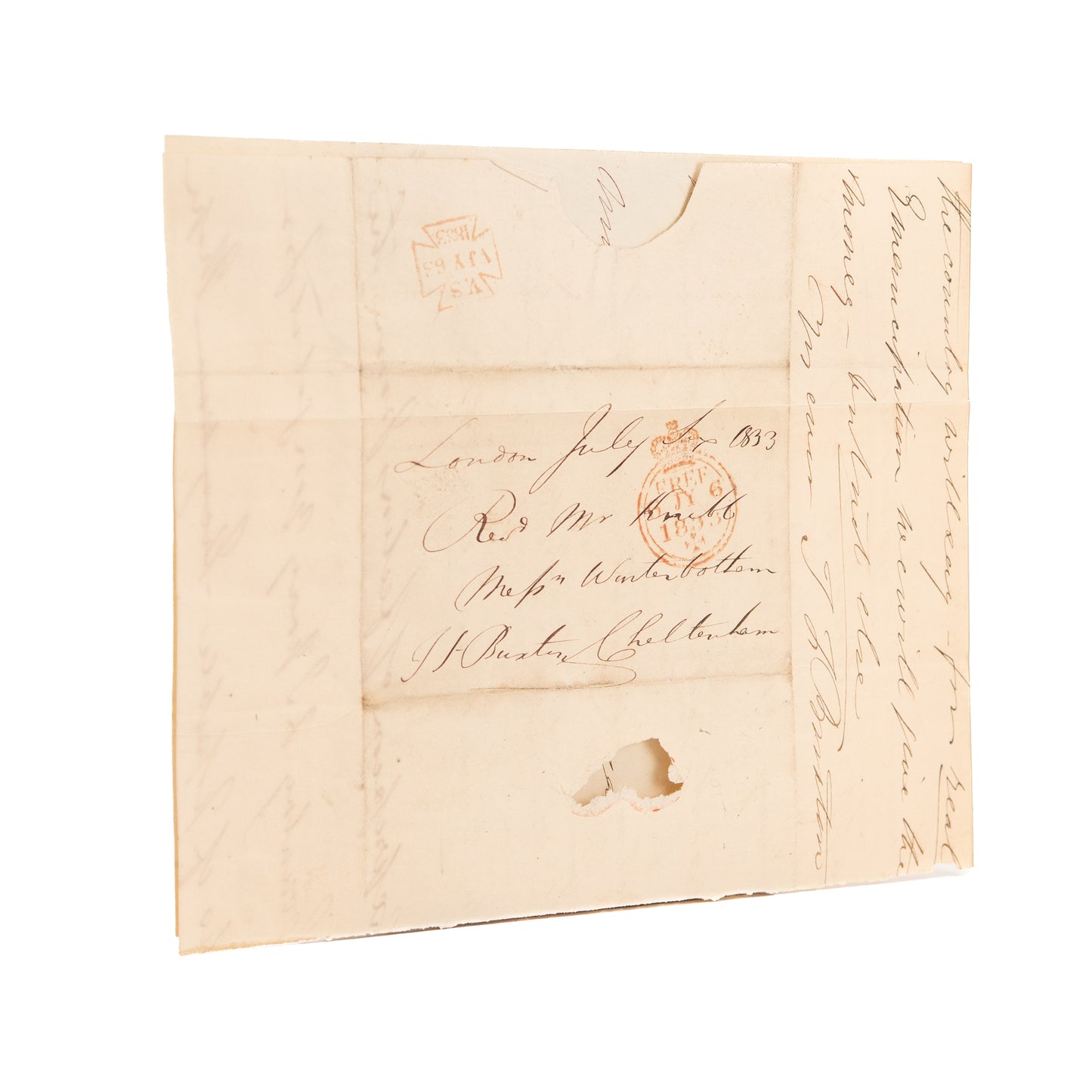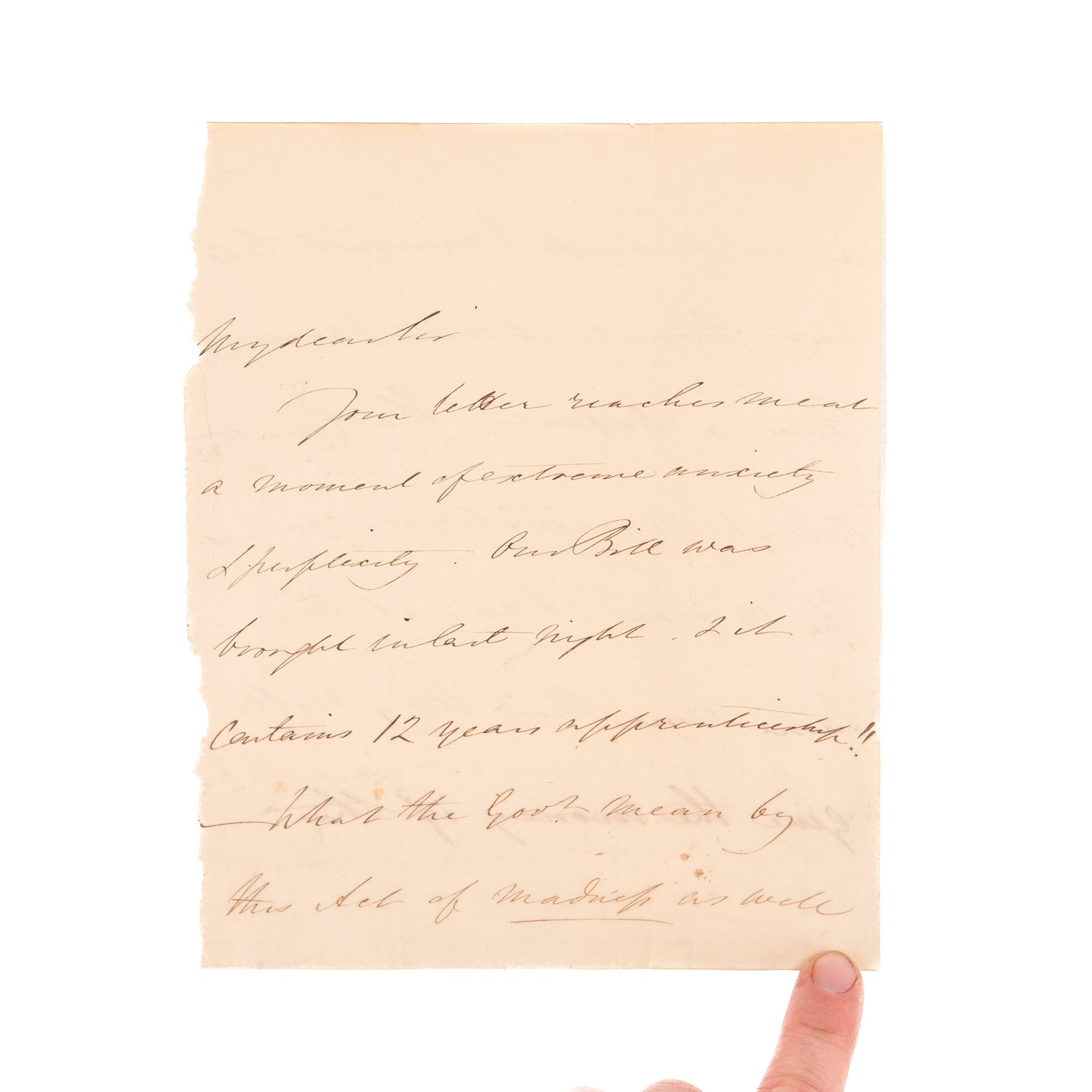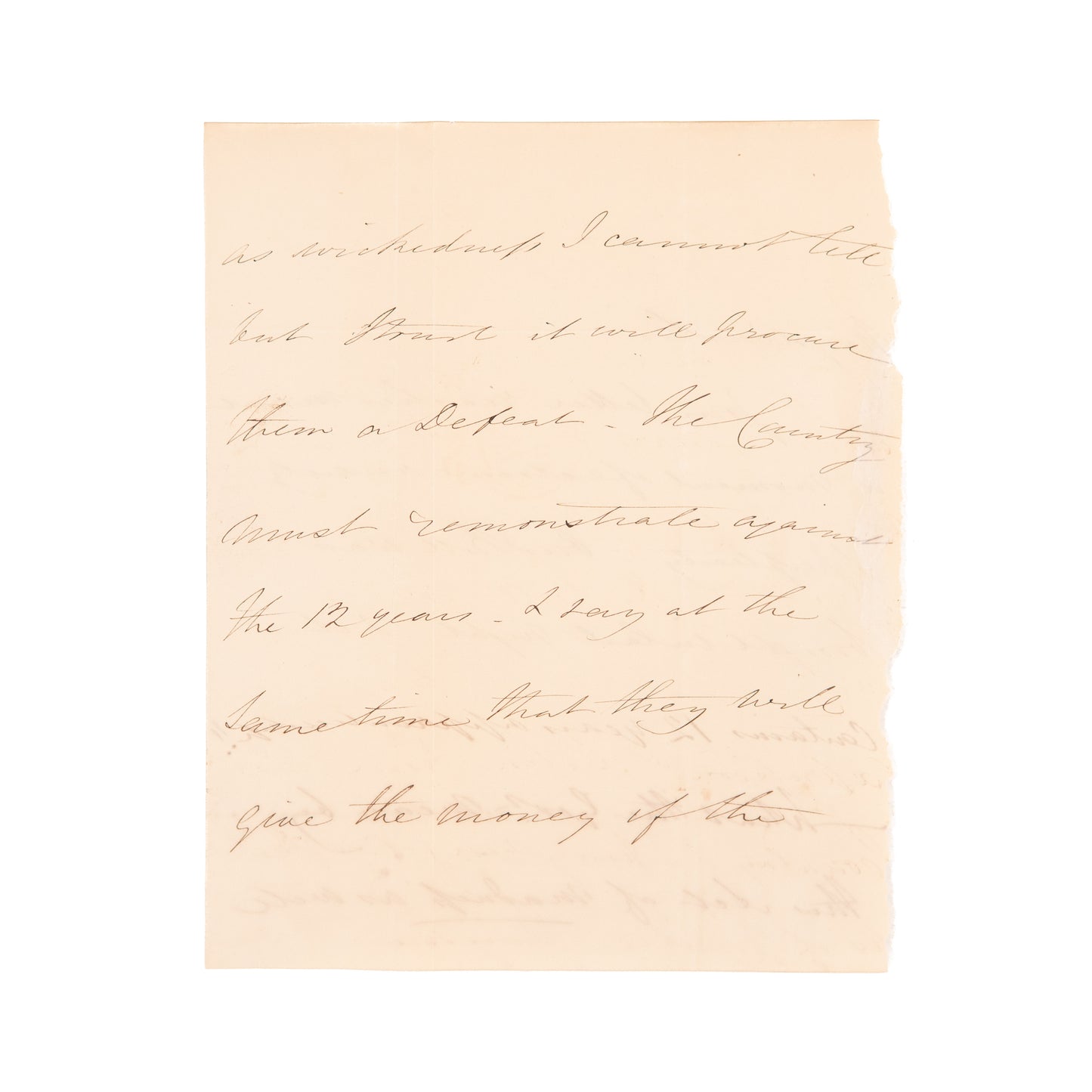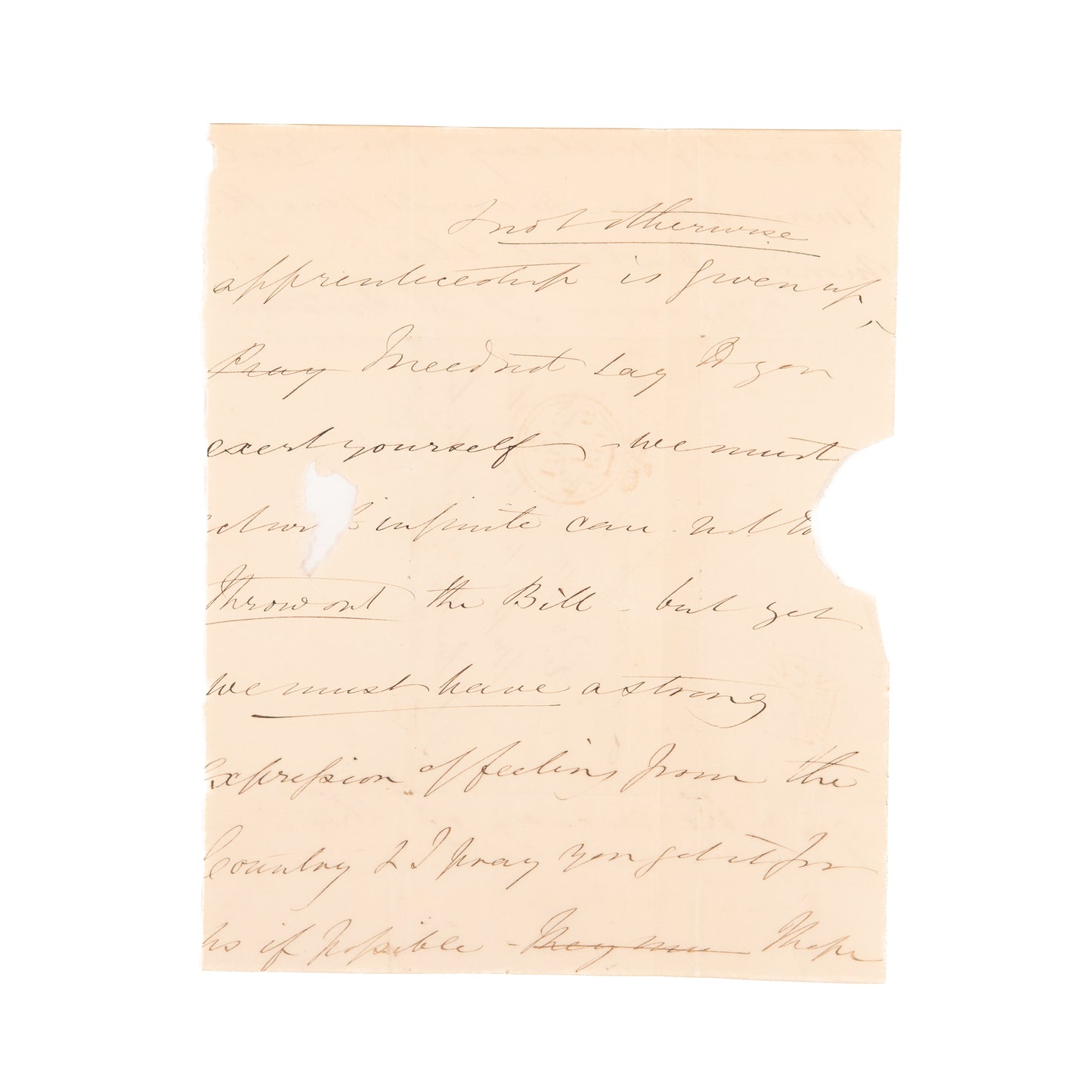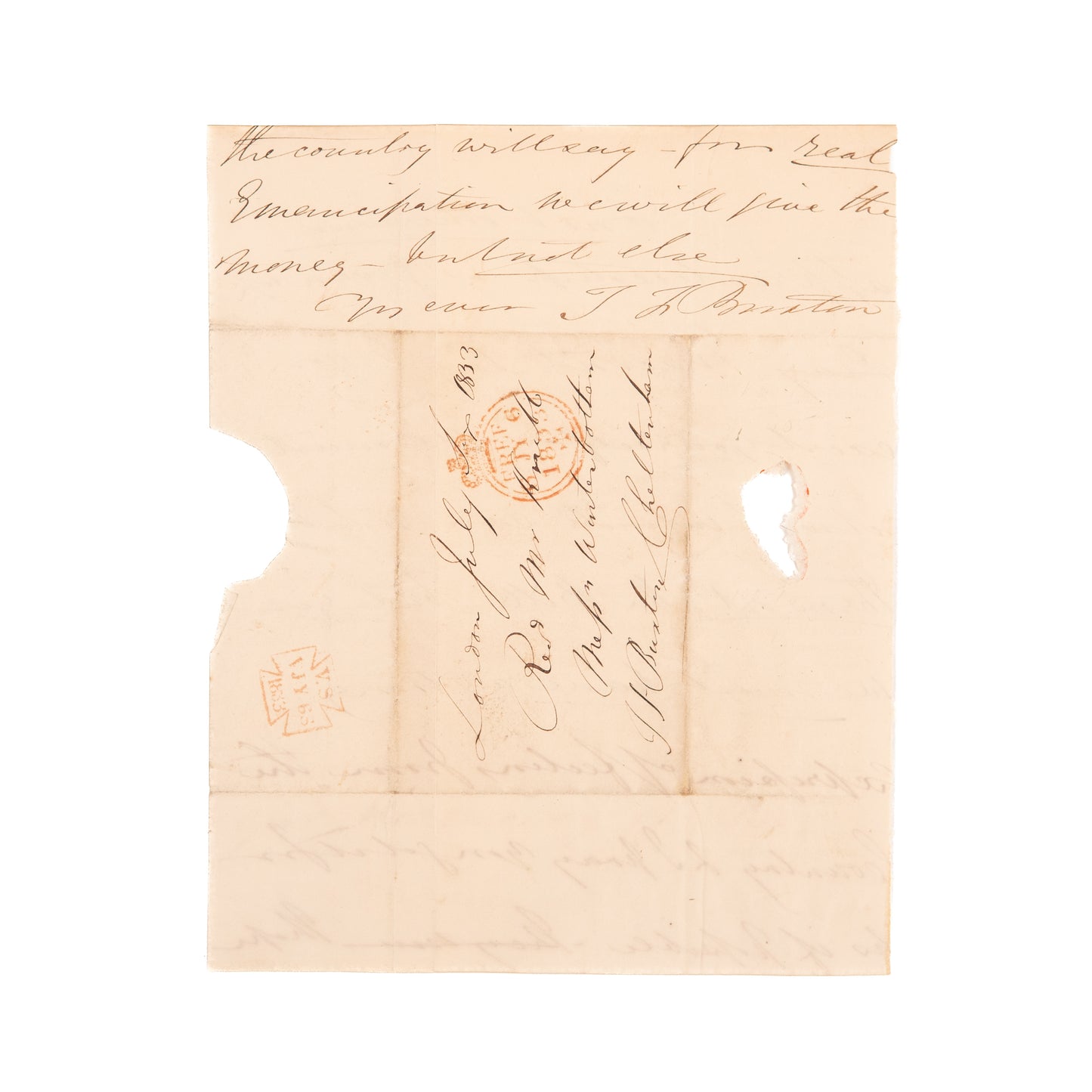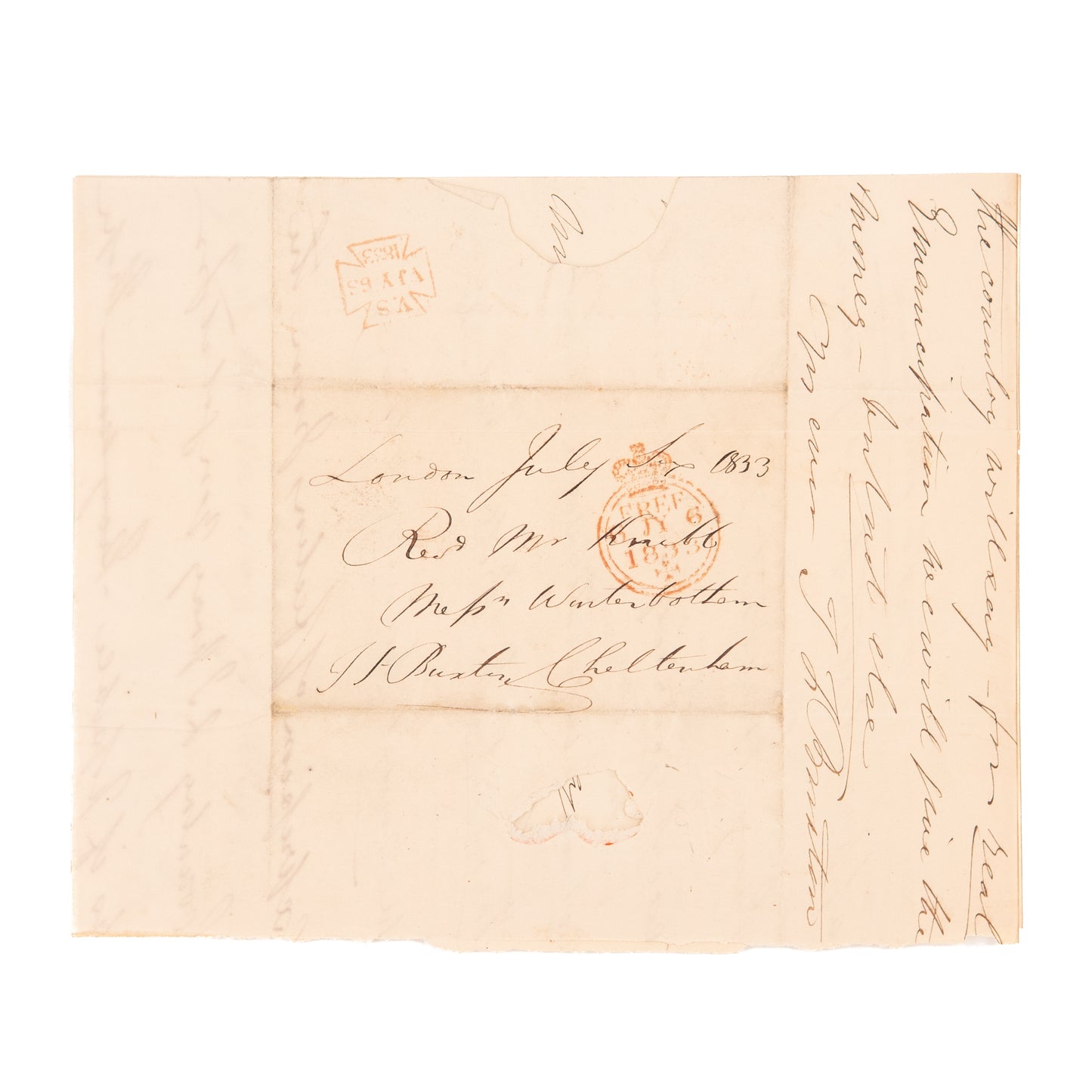Specs Fine Books
1833 THOMAS F. BUXTON. Abolitionists Outraged at Slave Traders Last Ditch Effort to Save Slavery
1833 THOMAS F. BUXTON. Abolitionists Outraged at Slave Traders Last Ditch Effort to Save Slavery
Couldn't load pickup availability
A very rare, unpublished 3.5pp. ALS entirely in the hand of influential abolitionist, co-founder of the Anti-Slavery Society, and close friend of William Wilberforce, Thomas Fowell Buxton.
The complete abolition of the slave trade in the United Kingdom was gradual, with signal victories along the way, including the 1807 act which forbade the trade of slaves, but not slavery itself; the 1823 formation of the Anti-Slavery Society by Thomas Fowell Buxton, William Wilberforce, Thomas Clarkson, & Co, with the explicit aim of ending all slavery in any form; and the signal achievement of the abolitionists, the 1833 Act on the Abolition of Slavery in the British Empire.
Wilberforce, the "face" of the abolitionist movement in Parliament, died on July 29, 1833. The Act itself was passed just 7 days earlier, July 22, and received royal assent on August 28, 1833.
The present letter dates from July 6, 1833, just 16 days before the vote and reflects Buxton's outrage at the latest draft of the Act returned by the Government, which attempted to sneak in a last minute additional concession to the slave owners, i.e. a 12 year mandatory period of "apprenticeship" for all slaves over 6 years of age follower their release, with those under six being immediately manumitted and taken in by schools for the education of the young children of the newly freed [but "apprenticed"] slaves.
The letter, addressed to anti-slavery missionary, Rev. William Knibb, reads as follows:
Dear Sir,
Your letter reaches me at a moment of extreme anxiety and perplexity. Our Bill was brought in last night & it contains 12 years apprenticeship!! What the Govt means by this act of madness as well as wickedness I cannot tell, but I trust it will procure them a defeat. The Country must remonstrate against the 12 years. I say at the same time that they will give the money of the apprenticeship up & not otherwise.
Pray I need not say to you to exert yourself. We must act with infinite care not to throw out the bill, but yet we must have a strong expression of feeling from the Country, & I pray you get it for us if possible. I hope the Country will say, for real Emancipation we will give the money, but not else.
Yours.
T. F. Buxton.
In the end, there was a painful compromise on the part of the Abolitionists. The Act, as planned, compensated enslavers with twenty million pounds for the “cost” of losing their labor force. According to the original plan, the enslaved children under the age of six were freed immediately. However, those older than age six were forced to work as “apprentices” for a period of, not twelve years, but six. Abolitionists in Great Britain continued to push for the end of this system and were at last successful in winning complete emancipation for all enslaved people on August 1, 1838.
A significant item. Some tears and losses at extremities, nothing being rendered illegible and the paper remaining in good condition.
Share
